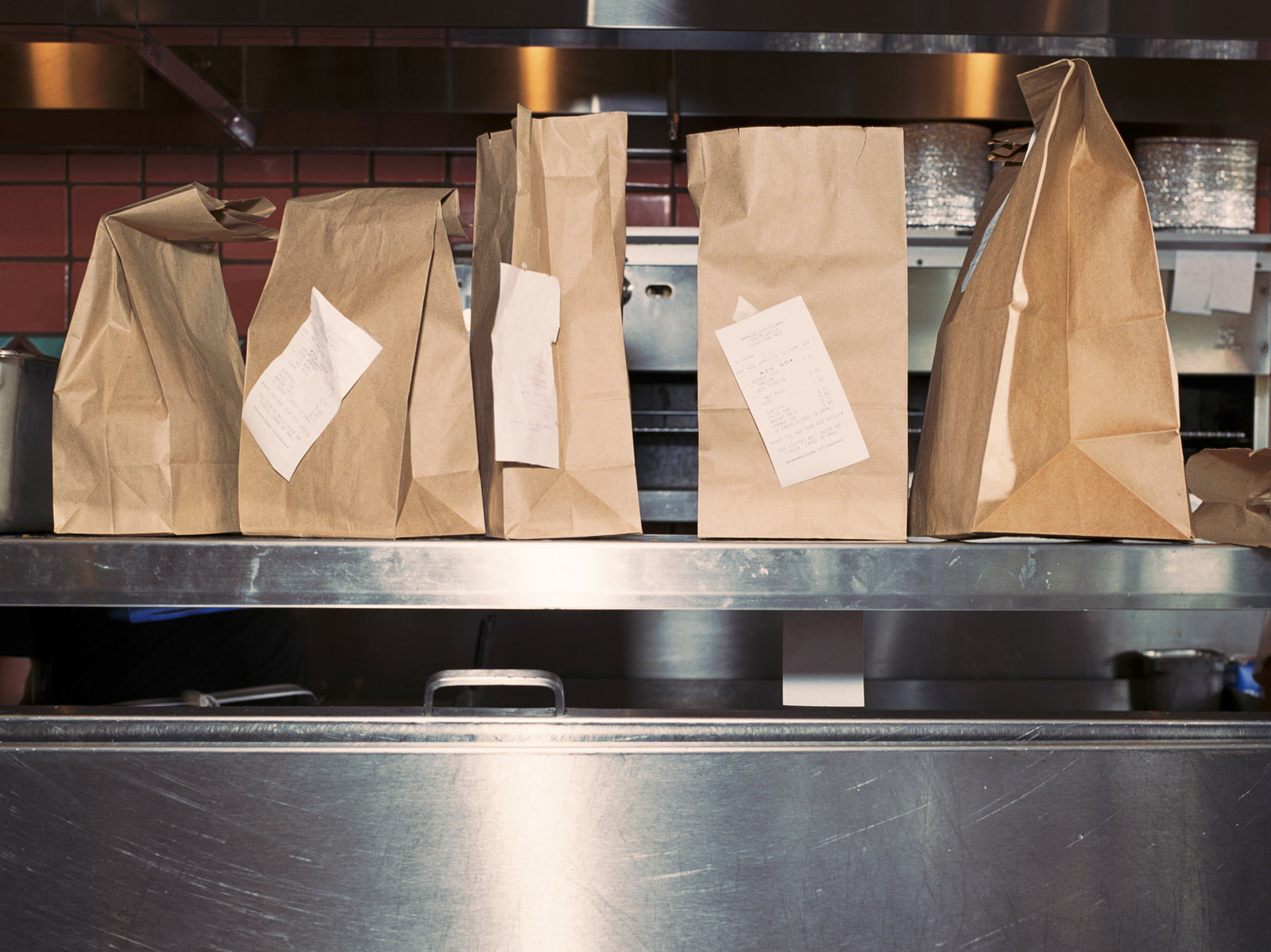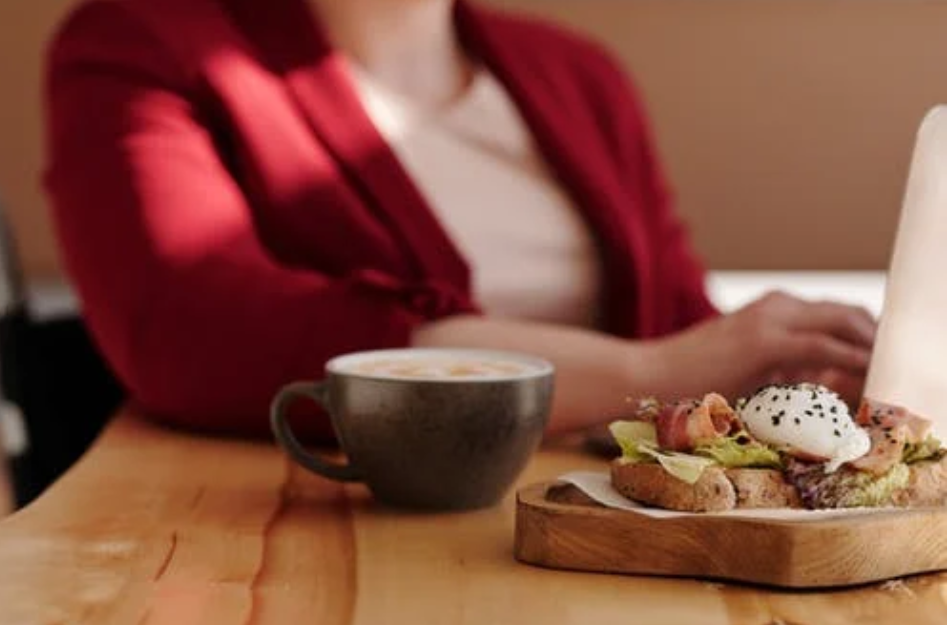外卖食品安全吗?
外卖食品安全吗?
Don Schaffner had Thai takeout for dinner a few nights ago, just as he did occasionally in the weeks and months before the current COVID-19 pandemic.
唐·沙夫纳几天前晚上吃了泰国外卖晚餐,就像他在目前的COVID-19大流行前的几周和几个月偶尔吃的一样。
That's worth knowing. Schaffner is a distinguished professor at Rutgers University in New Jersey whose expertise includes quantitative microbial risk assessment, predictive food microbiology, hand-washing and cross-contamination.
这是值得了解的。沙夫纳是新泽西州罗格斯大学的杰出教授,专长包括微生物风险定量评估、食品微生物预测、洗手和交叉污染。

"I know people are worried, but from what we know currently about the virus, it's safe to eat food prepared at restaurants so long as you take the proper precautions — in particular hand-washing," says Schaffner.
沙夫纳说:“我知道人们很担心,但是根据我们目前对这种病毒的了解,只要采取适当的预防措施,特别是洗手,吃餐馆准备的食物是安全的。”
As the coronavirus spreads in the U.S. and Americans heed directives to stay home, takeout and delivery of prepared food is picking up. Many of us are wondering if eating takeout is a good idea. (Plus shouldn't we be cooking all those groceries we stocked up on?)
随着冠状病毒在美国的传播,美国人听从指令呆在家里,外卖和熟食的快递也在增加。我们许多人都在想,吃外卖是不是一个好主意。(另外,我们是不是应该把要储存的所有杂货都煮一下?)
Luckily for lazy people, eating food prepared in restaurants appears to be a safe choice. Current guidance from the Food and Drug Administration states that "there is no evidence to suggest that food produced in the United States can transmit COVID-19."
幸运的是,对于懒惰的人来说,吃餐馆里准备的食物似乎是一个安全的选择。美国食品和药物管理局目前的指导意见称,“没有证据表明美国生产的食品可以传播COVID-19.”
Infectious disease and food safety experts we spoke to say they base their determination that takeout food is safe on decades of research on other coronaviruses, which were first identified in humans in the 1960s.
我们采访的传染病和食品安全专家说,基于几十年来对其他冠状病毒的研究,他们认为外卖食品是安全的,这些病毒在20世纪60年代首次在人类身上发现。
"While COVID-19 is new to us, coronaviruses are not, and with all the studies done on these viruses, there has never been any information to implicate food-borne transmission," says Dr. William Schaffner, a professor of medicine in the department of infectious diseases at the Vanderbilt University School of Medicine in Nashville, Tenn.
田纳西州纳什维尔范德比尔特大学医学院传染病系的医学教授威廉·沙夫纳博士说:“虽然我们对COVID-19还不太了解,但对冠状病毒比较了解,随着对这些病毒进行的所有研究,从来没有任何信息涉及食物传播。”。
The coronavirus that causes COVID-19 is primarily spread via droplets expelled through coughing or sneezing, says William Schaffner. If you're standing too close (within about 6 feet) to an infected person when the person coughs or sneezes, or even possibly when the person speaks or exhales, viral droplets could make their way to your nasal passages and mucous membranes. Or if you touch a surface with droplets on it and then touch your eyes, nose or mouth, that could also lead to infection.
引起COVID-19的冠状病毒主要通过咳嗽或打喷嚏时喷出的飞沫传播,威廉·沙夫纳说。当患者咳嗽或打喷嚏,甚至可能说话或呼气时,如果你站得离患者太近(约6英尺内),病毒滴可能会进入你的鼻腔和粘膜。或者,如果你接触到表面有液滴的物体,然后又接触到你的眼睛、鼻子或嘴巴,也可能导致感染。
William Schaffner explains that the virus is primarily risky to us when it attaches to surfaces in our respiratory tract, not when we accidentally eat it. "The virus seems to be latching onto cells in the upper reaches of the nose, a place food doesn't enter," he explains. "Virus that found its way into your gastrointestinal tract would be killed by the acid in your stomach."
威廉·沙夫纳解释说,对我们来说当病毒附着在呼吸道的表面时是主要的风险,而不是当我们不小心吃掉它的时候。他解释说:“这种病毒似乎是附着在鼻子上部的细胞上,而食物是无法进入这个部位的。”“进入胃肠道的病毒会被胃酸杀死。”
Several infectious disease experts whom NPR spoke to concurred that research hasn't turned up any evidence of COVID-19 spreading through food.
几位接受美国国家公共电台采访的传染病专家一致认为,研究并没有发现任何证据表明COVID-19通过食物传播。
"There are no published reports of linkage to food [of the novel coronavirus]," says Dr. Rachel Bender Ignacio, an associate professor of allergy and infectious diseases at the University of Washington School of Medicine. In February, the World Health Organization said the same thing, though it noted that food safety authorities are keeping an eye on the issue.
华盛顿大学医学院过敏症和传染病副教授雷切尔·本德·伊格纳西奥博士表示:“目前还没有发表过有关(这种新型冠状病毒)与食品有关的报道。”今年2月,世界卫生组织也说了同样的话,不过该组织指出,食品安全部门正在密切关注这一问题。

While all the experts we spoke to were in agreement that restaurant food is safe to order during the COVID-19 outbreak, if you are immunocompromised or just feeling extra wary, you may want to consider ordering cooked food only rather than uncooked items such as sandwiches. Cooking at high-enough temperatures kills viruses, says Elizabeth Mills, a registered dietitian at the Villanova University College of Nursing, in Villanova, Pa.
虽然我们采访的所有专家都同意,在COVID-19爆发期间,餐馆的食物是安全的,但如果你免疫功能受损或只是感到格外谨慎,你可能会考虑只点熟食,而不是像三明治这样的生食。宾夕法尼亚州维拉诺瓦市维拉诺瓦大学护理学院的注册营养师伊丽莎白·米尔斯说,在足够高的温度下烹饪可以杀死病毒。
It's also worth noting that safe food-handling rules, required of any establishment that serves food, would also be protective against spreading the coronavirus, says Don Schaffner. These include wearing gloves, workers staying home when sick, frequent hand-washing and disinfecting of surfaces in the kitchen.
唐·沙夫纳说,同样值得注意的是,任何食品供应企业都必须遵守安全的食品处理规定,这也可以防止冠状病毒的传播。这些措施包括戴手套、员工生病时呆在家里、经常洗手以及对厨房表面进行消毒。


















